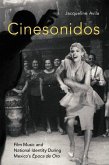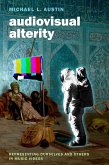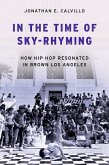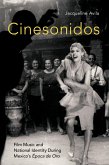
Broschiertes Buch
Film Music and National Identity During Mexico's Época de Oro
14. Oktober 2019
Oxford University Press
| eBook, ePUB | 24,95 € | |
| eBook, PDF | 18,95 € |
12,99 €
Versandfertig in über 4 Wochen
Broschiertes Buch
A Conexão que Transforma
7. Januar 2025
Amazon Digital Services LLC - Kdp
Ähnliche Artikel

Broschiertes Buch
Online Hip Hop Music and Culture
18. Oktober 2024
Oxford University Press

Broschiertes Buch
Representing Ourselves and Others in Music Videos
12. November 2024
Oxford University Press

Broschiertes Buch
Representation and Performing Identity in Western Turkey
15. Juli 2019
Oxford University Press

Broschiertes Buch
An Oxford Handbook of Applied Ethnomusicology, Volume 1
20. März 2019
Oxford University Press

Broschiertes Buch
The Jazz Tradition and Black Vernacular Dance
16. April 2021
Oxford University Press

Broschiertes Buch
How Hip Hop Resonated in Brown Los Angeles
4. Oktober 2024
Oxford University Press

Broschiertes Buch
An Oxford Handbook of Applied Ethnomusicology, Volume 3
20. März 2019
Oxford University Press

Broschiertes Buch
Naxi Music in Modern China Book and CD-ROM
3. Juni 2011
Oxford University Press

Broschiertes Buch
An Oxford Handbook of Applied Ethnomusicology, Volume 2
20. März 2019
Oxford University Press

Ähnlichkeitssuche: Fact®Finder von OMIKRON

